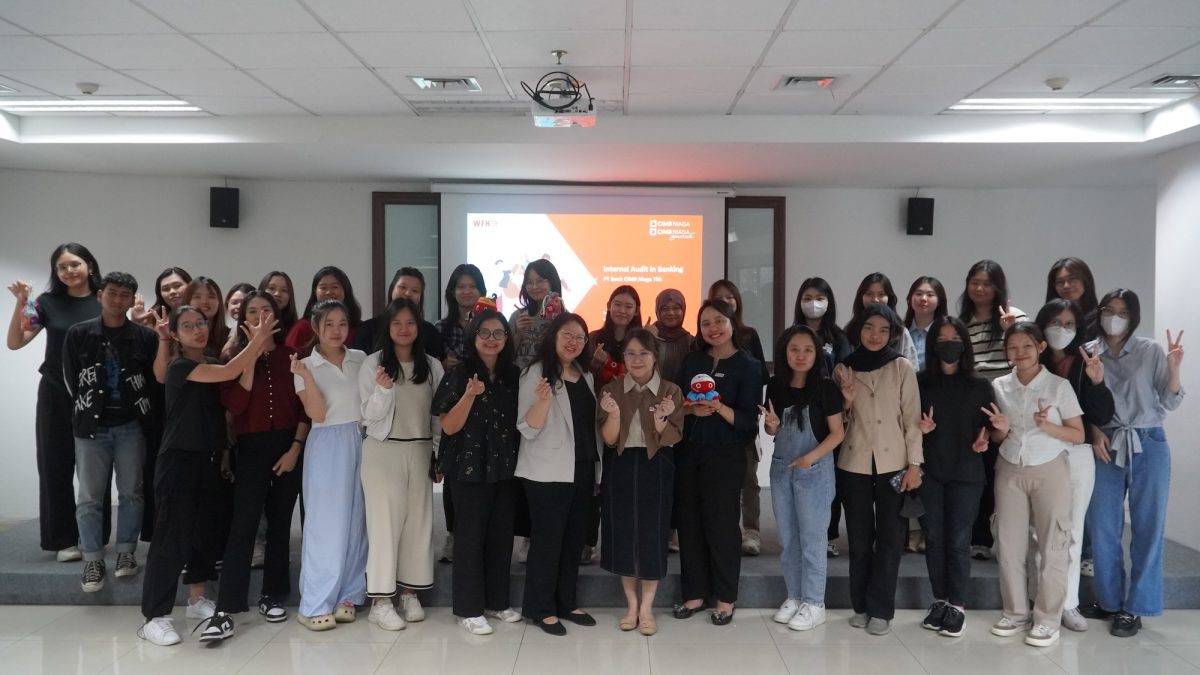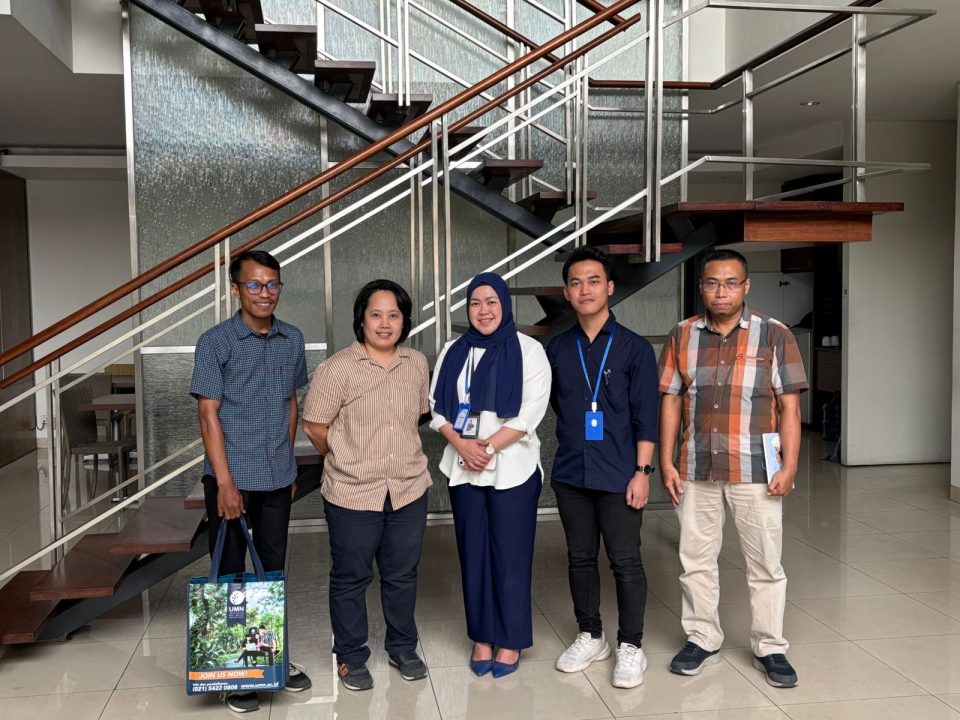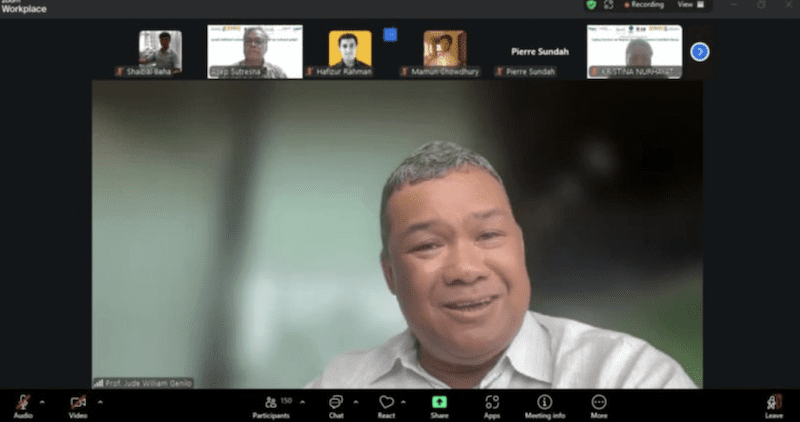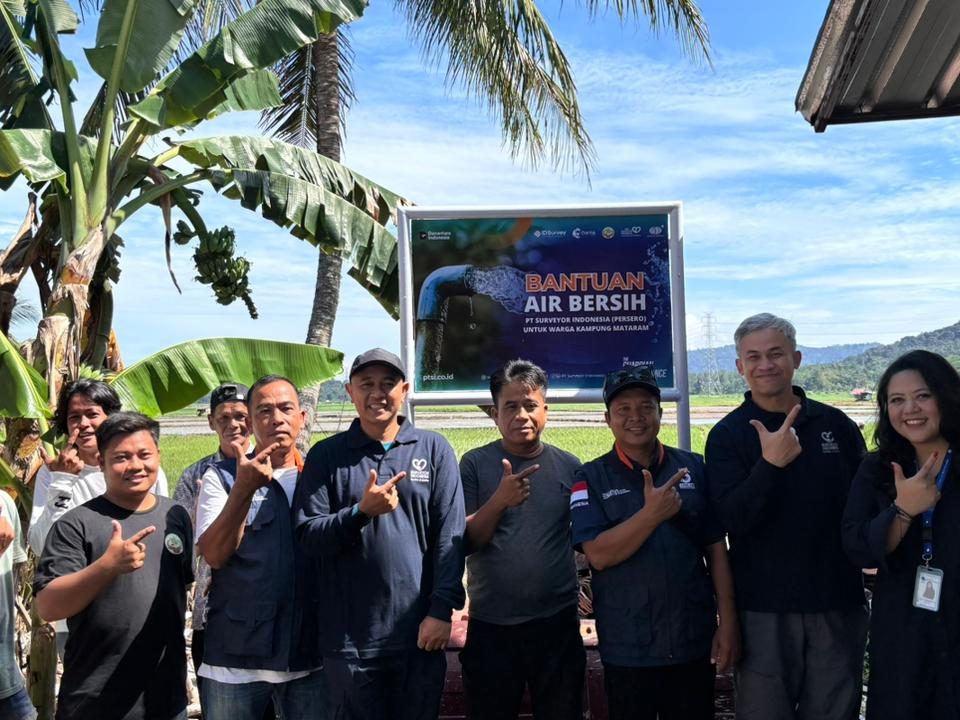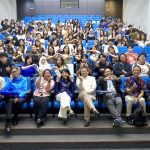
Prof. Randy Jay C. Solis, PhD, Becomes Visiting Professor at The UMN Faculty of Communications Program!
November 7, 2025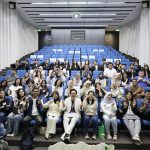
UMN Communication Science Distance Learning Gathering 2025: Bloom Beyond The Screen
November 7, 2025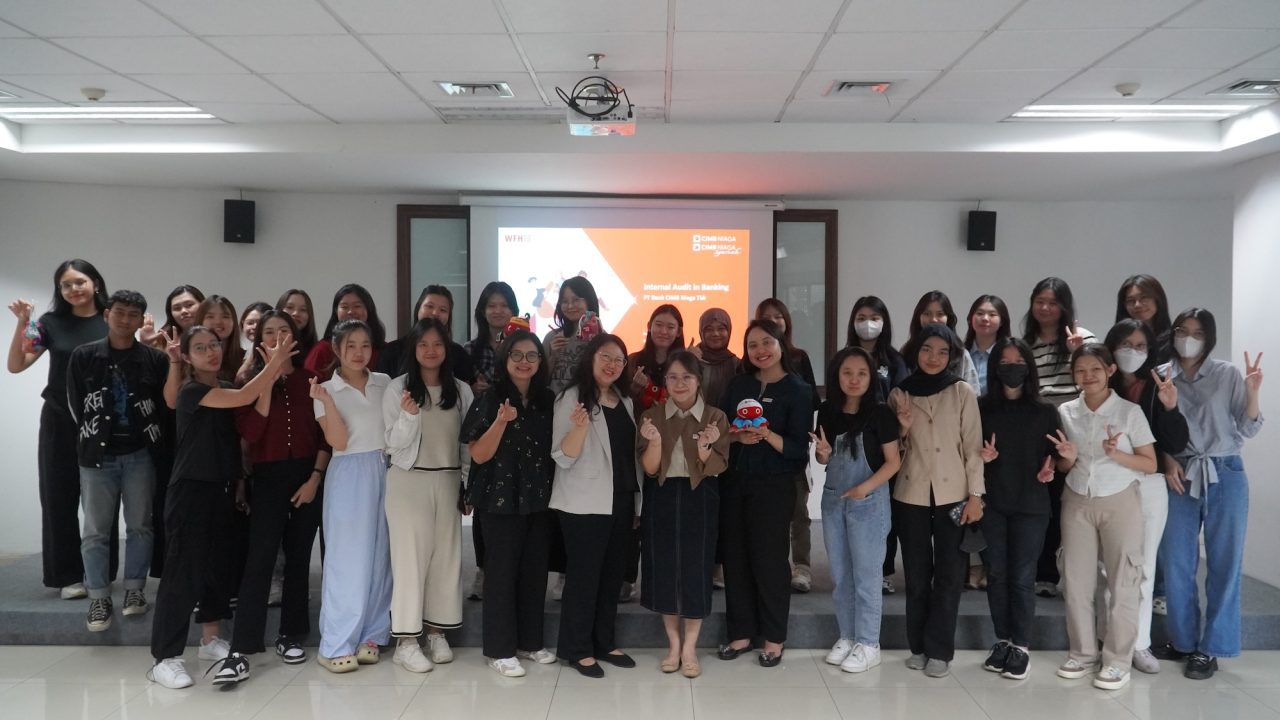
Group photo of CIMB Niaga speakers with UMN Accounting Program students. (Doc. UMN)
Tangerang, (04/11/2025) – In preparing students for their careers, UMN not only prepares students for employment in the industry. Throughout their time as students, UMN continues to equip them with new knowledge, including through guest lectures. In this guest lecture, UMN students learned about internal auditing. This activity is one of the collaborative programs between UMN and CIMB Niaga.
The guest speakers for this lecture were Anastasya Fanny Supangat, VP, Quality Assurance & Audit Methodology Head, and Elisa Gunawan, Financial Professional. Both speakers raised the topic of “Internal Auditing Banking,” which was attended by UMN Accounting students. CIMB Niaga explored in depth how internal auditing operates in the workplace, particularly in the banking sector.
“How does internal auditing work in banking? First, we must understand that internal auditing differs from external auditing. Internal audit checks all financial reports in detail, while external audit only reviews the numbers. Many people think that internal audit is like the police, but we are here to be partners, not to find mistakes,” Anastasya Fanny Supangat explained.
In Anastasya’s own experience, she explained that as an internal auditor, she often provides advice and input for the future of an organization, taking into account trends and future developments. As an internal auditor herself, she also coordinates directly with the internal audit board of commissioners.
“At CIMB Niaga, internal audit is divided into several parts, including auditors who go directly to the field, credit banking auditors, branch auditors, and the head of audit data analytics. Of course, the work is still the same, only the placement and functions that need to be audited are different,” Anastasya added.
The most important thing for Anastasya, as an internal auditor, is to have broad knowledge to avoid fraud risks. Anastasya also explained the risks and controls in internal auditing. She explained that risks in internal auditing are the probability of future events, while controls are preventive measures against existing risks. Anastasya also explained the various risks faced by internal audit in the industry, including cyberattacks, fraud, operational risk, data integrity risk, and others.
“Trends are also encouraging the use of technology in the internal audit workplace. Currently, many internal auditors are using Artificial Intelligence (AI) tools. AI is not only used for generative AI, but also implemented in real-life internal audit processes,” Anastasya added.
Anastasya also explained report writing in internal auditing, as well as the stages of internal auditing, starting with the walkthrough stage, general information, regulatory, risk & control self-assessment, and ending with the timeline stage. This guest lecture was continued by Elisa Gunawan, who discussed in detail how internal auditing operates at CIMB Niaga.
“For me, internal auditing is very good for the future. Not only does it address industry needs, but the experience and knowledge you gain can be useful for a lifetime. The job opportunities are also great. Even a leader with internal auditing knowledge can be very good and more detailed,” Elisa explained.
According to Elisa, internal auditing also has great value, especially in terms of people’s trust within the organization. In her experience, Elisa has developed many new, implementable ideas. However, there are certainly challenges to be faced, especially when communicating sensitive matters or findings.
“As internal auditors at CIMB Niaga, we uphold agility in making decisions or planning. We must be able to adapt and respond to changes quickly. One of the things we often do is to develop various plans. If the plans we have developed cannot be used, we must also be ready with new plans, so agility is criticalant,” Elisa added.
Elisa also advised students not to worry about an uncertain future or career. The most important thing for students is to make the most of the opportunities available on campus. By attending guest lectures like this, you are also opening up promising opportunities for yourselves.
By Rachel Tiffany | UMN News Service
English translation by Levina Chrestella Theodora
Kuliah di Jakarta untuk jurusan program studi Informatika| Sistem Informasi | Teknik Komputer | Teknik Elektro | Teknik Fisika | Akuntansi | Manajemen| Komunikasi Strategis | Jurnalistik | Desain Komunikasi Visual | Film dan Animasi | Arsitektur | D3 Perhotelan , di Universitas Multimedia Nusantara.

